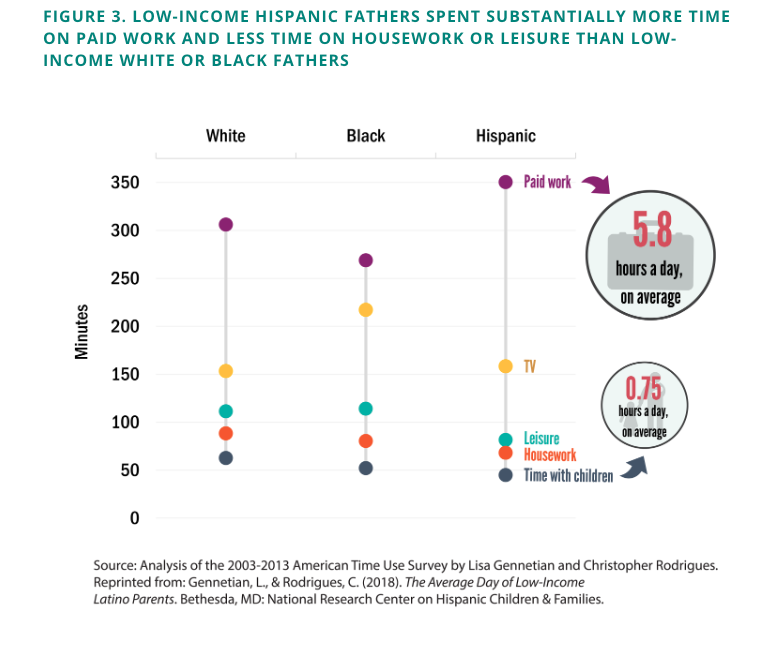
Share On Social!
Latino kids living in households with low-incomes and with at least one employed adult need more support, according to new research.
Previous research has shown that Latino and other minority youth experience higher rates of poverty and more significant gaps in education and health opportunity than their white peers.
“Instead of focusing on providing employment to Latino parents, we should be focusing on how to advance the positions they already hold,” Lisa A. Gennetian, a visiting associate professor at Duke University’s Sanford School of Public Policy, told NBC News. “The question should no longer solely be, ‘How do we move low-wage Latino parents to the workforce?’ because the majority are already there.”
Study Findings
Researchers examined the financial positions low-income Latino families hold using data from the Survey of Income and Program Participation, the American Time Use Survey, the American Community Survey, and other sources.

This new study goes to illustrate that such poverty is not attributed to a lack of parental employment as many assume.
Moreover, the research demonstrated that:
- 64% of low-income Latino kids residing with two nonimmigrant parents lived with an employed adult in 2012 as compared to 67% for non-Latino white and 54% of black kids.
- 81% of low-income Latino children with at least one immigrant parent lived in a household with one or more employed adults.
Unfortunately for Latinos, there are few sources of income.
The study also found that low-income Latinos—unlike their white and black peers—cite earnings from wages alone as their only source of income stability.
For low-income families as a whole, the primary source of income is earnings from the employed adults’ wages as well as the monthly receipt of government benefits, such as SNAP.
One reason why low-income Latinos opting out of government benefits? Immigration-related fear.
This is true even for those who are citizens.
“Latino parents’ quality of work and work circumstances all compose trade-offs in child development,” Gennetian who is also the lead author of a study by the National Research Center on Hispanic Children and Families, said. “Earned income may be able to pay for food, but if there’s any kind of economic shock — physical injury, natural disaster, death — it makes them more economically vulnerable. There’s a host of implications that supporting low-wage markets can benefit Latino children.”
Latino Prosperity
Low-wage employment adversely affects Latino families to build wealth as well as time spent with the children.
Racial, economic divisions are frequently attributed to personal and individual choices such as marriage, college attainment, spending habits, and others. Many studies show the racial wealth divide persists across all levels of educational attainment and family structures.
The “you chose that life” narrative is not valid, and the wage gap is even worse for Latinas.
U.S. Latinas are paid 47% less than white men on average, and 31% less than white women.
If wage gaps were eradicated, the average Latina would earn over $1 million more throughout her career.
Additionally, many Latino families already suffer a significant lack of access to support for economic and educational success, and quality healthcare, according to a Salud America! research review.
“This knowledge should enable us to rethink policy,” Gennetian said. “Higher wage benefits and flexible paid-time-off benefits could go a long way in helping Latino parents as they try to provide for their children.”
Explore More:
Healthy Families & SchoolsBy The Numbers
142
Percent
Expected rise in Latino cancer cases in coming years



